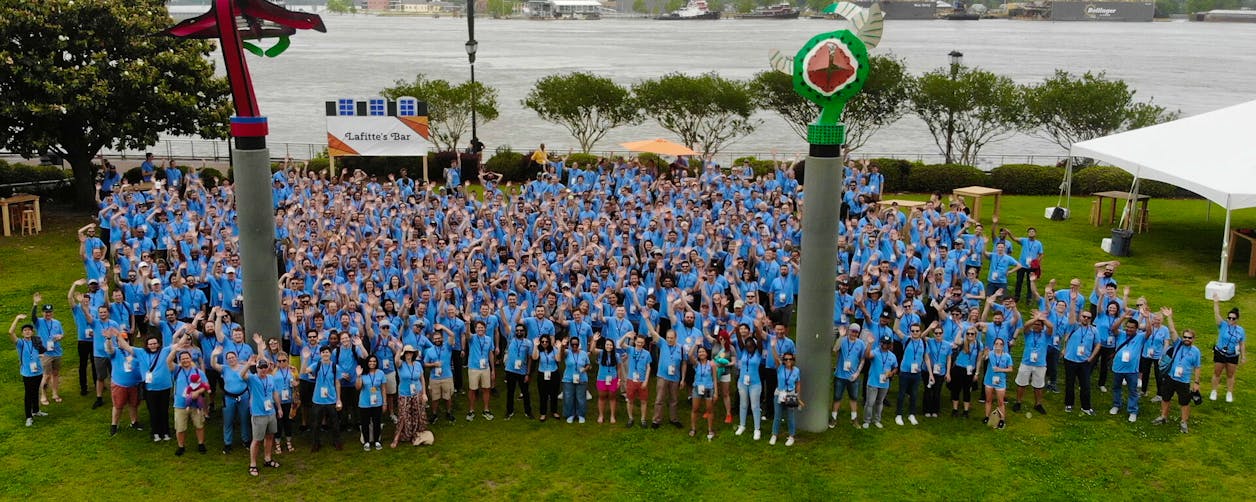

Gitlab
An open-source Git repository manager with wiki and issue tracking features and built-in CI/CD
Location & Timezone
Work from anywhere, on any timezone, and on any schedule that best fits your needs. Digital nomad frequently changing locations? Exciting! Night owl? Great! Morning bird? Great! We're 100% flexible.
Communication
We use asynchronous communication as a starting point and stay as open and transparent as we can by communicating through public issues, merge requests, and Slack channels.
We also place an emphasis on ensuring that conclusions of offline conversations are written down. When we go back and forth three times, we jump on a synchronous video call.
We don't expect employees to be available at all times. There's no expectation to respond to messages outside of your planned working hours.
Balance
In an all-remote environment, it can be difficult to identify signals of burnout and distress in ourselves and others. It is common to turn to work as a distraction to the chaos we feel in our day-to-day lives.
One of the most effective ways we encourage our employees to manage their mental health is to utilize the GitLab PTO Policy.
Taking time off is important. Here are just a few highlights of the GitLab PTO policy that are in our handbook to remind team members the importance of taking time away from work:
Not taking vacation is viewed as a weakness and people shouldn't boast about it. It is viewed as a lack of humility about your role, not fostering collaboration in training others in your job, and not being able to document and explain your work.
It's important to take PTO while you have something you want to do, rather than waiting until you need the time off.
Remember that it's normal to take extra time to catch up after returning from paid time off. Taking time off doesn't mean that you need to work multiple extra hours before or after your vacation. When taking extended time off, expect to have reduced capacity to take on new work the week of your return while you're catching up on the work that happened while you were away.
For more insight into how we help our employees prevent and address burnout, see this section of our handbook.
Gatherings
"Contribute" is our annual GitLab team event where we get together to interact with one another and cultivate our community. Since our team is scattered all over the globe, we try to plan a different location each year. Contribute is an optional event and team members aren't pressured to attend.
In April 2020, we pivoted to a Virtual Contribute after canceling the Prague (Czech Republic) Contribute due to Covid-19. GitLab team members and investors joined from around the world to enjoy keynotes, workshops, and speed coffee chatting.
In May 2019, 518 team members and 43 guests gathered in New Orleans, Louisiana (USA). Around a dozen customers, community members, and investors also experienced the GitLab culture.
Before we evolved to become GitLab Contribute, our annual gathering was called the GitLab Summit. Summits brought the team together every 9ish months:
- August 2018, Cape Town (South Africa)
- October 2017, Crete (Greece)
- January 2017, Cancun (Mexico)
- May 2016, Austin, Texas (USA)
- October 2015, Amsterdam (The Netherlands)
- October 2013, Novi Sad (Serbia)
This year (2021), we'll be gathering on Atlantis Paradise Island, in The Bahamas. Curious to learn more? View the official page.
Unity
Even though we are a large and distributed team, GitLab is like a big family.
Welcoming and Kind
We value caring for others. Demonstrating we care for people provides an effective framework for challenging directly and delivering feedback. We disagree with companies that say Evaluate People Accurately, Not "Kindly". We're all for accurate assessment, but we think it must be done in a kind way. Give as much positive feedback as you can, and do it in a public way.
Oh, we also have a slack channel ("#thanks") where we express our gratitude towards each other.
Learning from failure
"Iteration" is critical to our product improvement and development. We see what each of us produce initially as a draft. This helps us reduce the cycle time and have a prototyping mindset towards the features we are working on. We are not afraid of failure since we are always flexible in adjusting our products based on the feedback from both our external and internal communities.
What’s Gitlab?
An open-source Git repository manager with wiki and issue tracking features and built-in CI/CD
More than 3,000 people have contributed to GitLab. The GitLab Inc. team consists of the following 1318 team members and their 315+ pets. We're the world's largest all-remote organization and we currently have team members in 67 countries and regions.